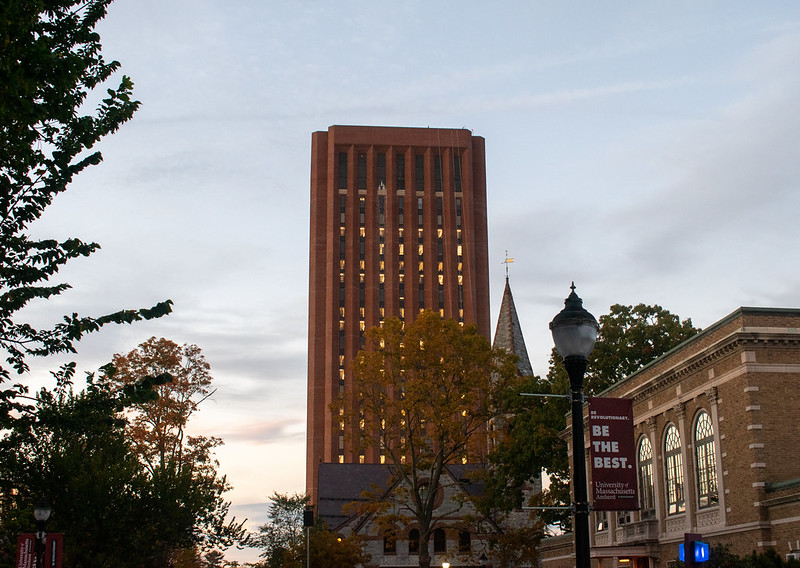On Sept. 29, University of Massachusetts students living on campus received an email from Residential Life Student Services stating that they may experience some “challenges” while ordering packages from Amazon. It explained that, although most packages come from private carrier companies such as FedEx and UPS, some are delivered by Amazon directly.
The University currently lacks a so-called “delivery vendor agreement,” said Residential Life Student Services Assistant Director Dominick Uguccioni in the email. This contract allows packages to be delivered at the Residential Service Desks so that University staff have some control of how students get their orders. There are binding contracts with all other carriers (UPS, FedEx, USPS, etc.), which allow these trucks to deliver the packages to the RSDs.
Amazon customers are unable to know the package’s carrier until after it ships. Consequently, as stated in the University’s email, “Amazon drivers have been attempting to bypass the system and deliver packages directly to students, and often times they are abandoning packages in residence hall lobbies or entryways.”
After interviewing some students, it became clear that this message created a lot of insecurity and uncertainty among the community, raising the question: is it still safe to order from Amazon? Manasvi Kalra, a first year journalism student, described the email as “confusing” because she has had no issues with Amazon so far, and now she is not sure if she can keep ordering.
Cassidy Teng, who currently works at the Brett Residential Hall RSD in Central, explained that she has been aware of the lack of contract since she started working there in the fall of 2019. When this situation first occurred, all the packages that were previously sent to the now-closed Amazon location in the Campus Center began to be delivered at the RSDs, which increased the workload for employees.
However, it wasn’t until the administration sent the email in September that supervisors told employees not to accept any orders coming directly from Amazon. Still, Teng described feeling confused by students asking about these possible issues because she “had just processed five bags worth of Amazon orders.”
Teng has not yet had to turn away a package coming directly from Amazon. Still, the most common issue at RSDs is that students get the delivery notification from Amazon up to 72 hours before the pick-up notification from the University, which causes many of them to ask for their package before it is ready. “A lot of issues stem from this confusion,” she expressed.
Mary Dettloff, the deputy director of the University’s Office of News and Media Relations, provided some information addressing the recent concerns. She affirmed that UMass did establish an agreement with Amazon from February to April this year but suspended it due to “Amazon’s difficulties following the delivery guidelines of the agreement.”
Dettloff further explained that it has been challenging for the administration to establish a new agreement with the shipping company. Meanwhile, they decided to warn students about the issue to avoid any further complications.
So, how should students proceed? First, keep in mind that Amazon has not yet provided information about the number of packages delivered by them directly. Some orders may still be transported to the RSDs by the previously mentioned carriers.
However, it is necessary to verify which company is the carrier once the package has shipped. When students get an email confirming the shipment, they can check the order details on the Amazon website. If Amazon is the carrier, they can contact their customer service and discuss further delivery options or possibly stop the shipment and ask for a refund.
Dettloff also advised students to “utilize the Amazon Locker facility located at Whole Foods in Hadley” as a precaution.
Paulina Ortiz can be reached at [email protected].



















